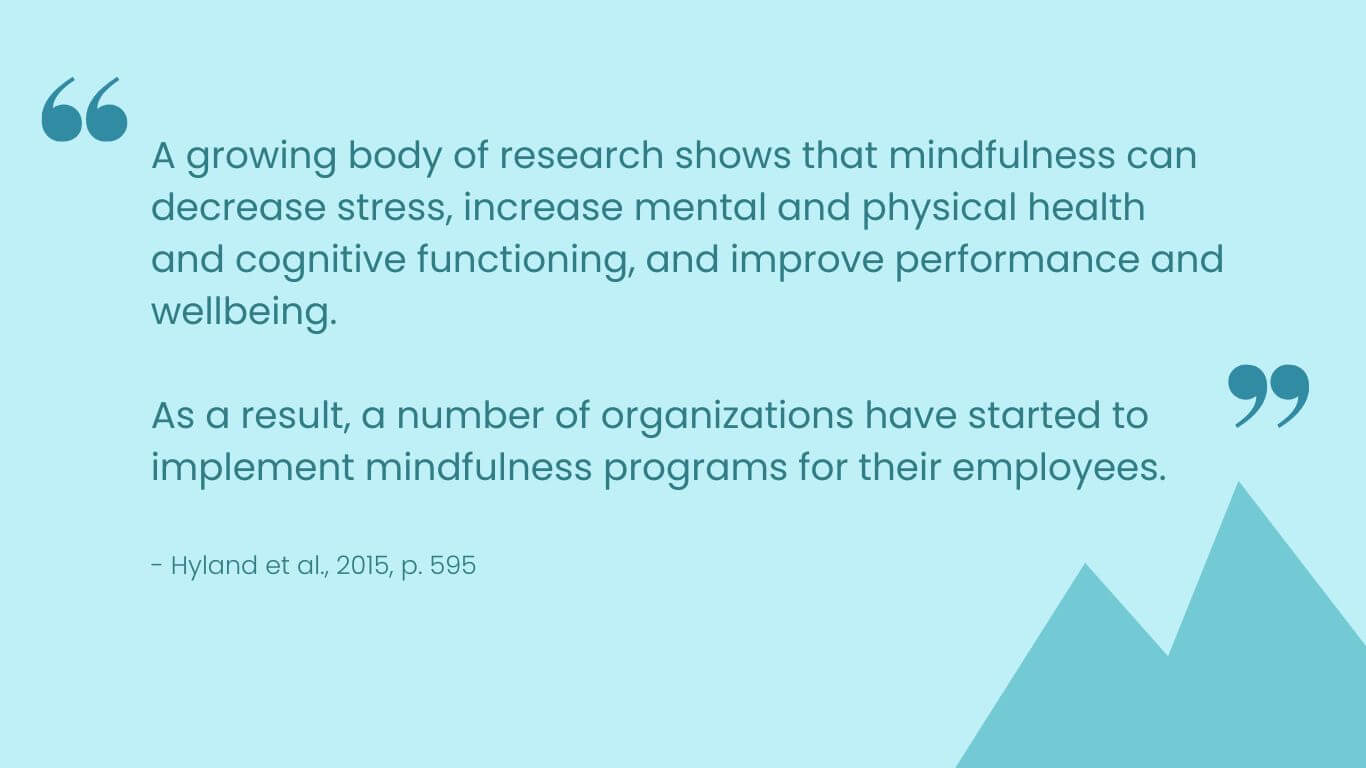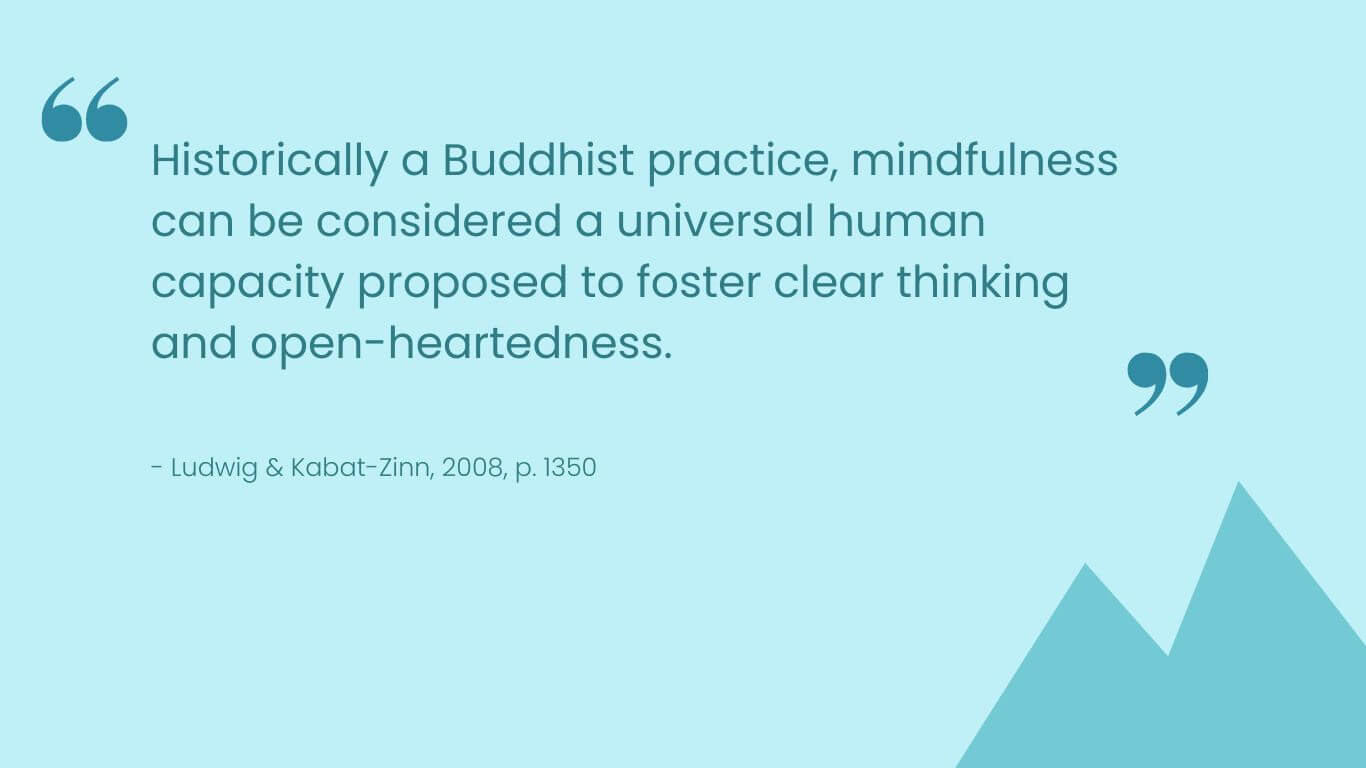Are you ready to supercharge your leadership skills and become a better manager?
Enter mindfulness – a game-changing practice that goes beyond task management.
In this blog post, we’ll unveil 8 practical applications of mindfulness that managers like you can seamlessly integrate into your routines. By doing so, you’ll not only enhance your leadership prowess and become more resilient but also create a team culture that’s built to thrive.
1. Morning Mindfulness Ritual
Kickstart your day with a mindfulness ritual. Dedicate a few minutes each morning to sit quietly and focus on your breath and grounding. You might want to try this mountain meditation or this meditation for self-compassion. This sets a positive tone for the day ahead, allowing you to centre yourself and cultivate a calm and focused mindset. As a manager, beginning your day mindfully can help you approach challenges with composure and clarity.
2. Mindful Communication
Communication is the cornerstone of being a great manager. Practise mindful communication by employing active listening techniques and being fully present during conversations with your team. Avoid interrupting or formulating responses while they’re speaking. This not only helps your employees feel heard but also enables you to fully understand their viewpoints and concerns and act accordingly.
3. Mindful Decision-Making
In the fast-paced world of management, decisions are often made on the fly. However, practising mindfulness can enhance your decision-making process. When faced with a significant choice, take a moment to pause. Reflect on your options, consider potential outcomes, and tune in to your intuition. This moment of mindfulness can lead to more well-informed and balanced decisions.
In fact, research suggests that mindful meditation improves cognitive control, emotional and regulation and empathy, resulting in better decision making1.

4. Mindful Delegation
Delegating tasks effectively is crucial when you want to be a better manager. Mindful delegation involves truly understanding the strengths of each team member. Assign tasks that align with their skills and offer opportunities for growth. Mindful managers trust their team and provide the necessary guidance while allowing individuals the autonomy to excel.
5. Mindful Conflict Resolution
Conflicts are inevitable in any workplace. Mindfulness can help you navigate conflicts with a composed and empathetic approach. During discussions, stay present and focused, noticing any judgement or defensiveness that arises.
Where possible, you might find it helpful to do a short mindfulness meditation directly before entering into challenging conversations. This will help you tune into whatever is going on for you personally, and allow you to approach the conversation more openly and with compassion for yourself and others.

6. Mindful Time Management
Effective time management is a challenge for many managers. Mindfulness can aid in prioritising tasks and staying present during each activity. When working on a task, fully engage without trying to multitask. This focused attention not only enhances productivity but also reduces stress.
7. Mindful Stress Management
The demands of managerial roles can lead to stress. Incorporate mindfulness techniques to manage stress effectively. Take short mindfulness breaks during the day. Practise breath awareness, grounding, and gratitude. Over time, these practices can reduce overall stress levels, relieve tension and increase your resilience and feelings of positivity.
If stress is something that affects you, you might want to check out our Mindfulness-Based Stress Reduction Course.

8. Mindful Team Building
Team dynamics greatly influence productivity and job satisfaction. Organise team-building activities that incorporate mindfulness, such as group mindful meditation and high quality mindfulness programmes. These activities foster a sense of unity, trust, and collaboration among team members.
Conclusion
Mindfulness isn’t just a buzzword; it’s a practical and transformative approach to leadership.
By incorporating mindfulness into your managerial toolkit, you can enhance communication, decision-making, conflict resolution, and overall team dynamics. These practical applications of mindfulness and compassion empower you to lead with empathy, authenticity, and resilience.
As you integrate these practices into your daily routine, you’ll discover that mindfulness not only benefits your leadership skills but also creates a positive and harmonious work environment that encourages growth and innovation.
